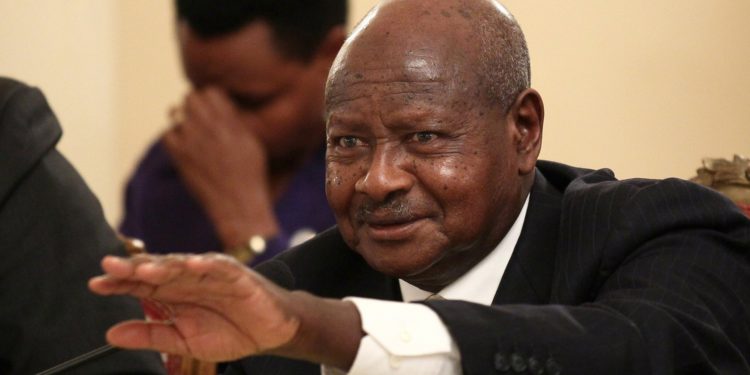The release of Uganda’s 2024 National Population and Housing Census paints a grim picture of the nation’s economic reality. With 33% of Ugandan households—equivalent to 3.5 million families—still trapped in subsistence farming, the narrative of economic progress pushed by President Yoweri Museveni’s regime crumbles under the weight of undeniable facts. This is not a modern economy, as claimed by government officials, but a stark reminder of Uganda’s continued underdevelopment. The situation speaks to the failures of leadership that have left millions of Ugandans languishing in poverty.
According to the census, a staggering 75% of these 3.5 million households are dependent on subsistence farming, a clear indicator of the regime’s inability to uplift its citizens from the clutches of poverty. Subsistence farming, by its very nature, is not sustainable for national development. It provides just enough for families to survive, leaving little room for savings or reinvestment. For Museveni’s administration to call this state of affairs “progress” is not only disingenuous but a direct insult to the millions of Ugandans struggling to make ends meet.
The government’s much-touted Parish Development Model (PDM) has been heralded as the answer to Uganda’s economic woes, yet its effectiveness remains questionable. Under the PDM, each parish is allocated Shs100m to stimulate development and transition households from subsistence to commercial farming. However, corruption and mismanagement continue to plague the model. Funds that are meant to empower communities are frequently siphoned off by well-connected elites, leaving the intended beneficiaries with empty promises. The question remains: How can a program that lacks transparency and accountability ever deliver real results?
The crisis is particularly acute in historically marginalized regions such as Karamoja, West Nile, Acholi, Bukedi, and Teso. In Karamoja alone, 71% of households remain in the subsistence economy. This is a region that has been consistently neglected by Museveni’s government, receiving minimal support despite its vast potential. Similarly, 52.8% of households in West Nile remain stuck in subsistence farming, demonstrating the government’s failure to address regional inequalities. In both regions, the lack of meaningful economic opportunities has contributed to the widening gap between the prosperous and the impoverished.
In contrast, regions like Buganda—often viewed as a political and economic stronghold of the Museveni regime—fare significantly better, with only 15% of households reliant on subsistence farming. This disparity highlights a troubling pattern of selective development. While regions like Buganda, Ankole, Bunyoro, Kigezi, and Tooro receive government attention and resources, other areas are left to stagnate. The uneven distribution of development programs reveals a political strategy that prioritizes regions based on loyalty rather than need.
The census also shows that 7.2 million households are categorized as non-subsistence. However, this figure is misleading. Many households in this category are not thriving, as the government would have us believe, but are merely surviving on precarious wages. The urban poor, in particular, continue to grapple with low wages, high living costs, and limited access to basic services. These realities undermine the government’s claims of economic success.
President Museveni’s government has often positioned itself as a champion of economic transformation, yet the evidence tells a different story. The persistence of subsistence farming, regional inequalities, and the rampant misuse of development funds paint a picture of a leadership out of touch with the needs of its people. Instead of addressing these pressing issues, the regime has focused on maintaining political power, often at the expense of genuine national progress.
Uganda’s current economic state is not the result of external factors alone. It is the culmination of years of poor governance, corruption, and missed opportunities. The subsistence economy is not an unfortunate accident—it is the byproduct of a government that has failed to invest in its people and prioritize sustainable development. As a result, Uganda remains reliant on foreign aid, with millions of its citizens trapped in cycles of poverty and dependency.
As the census data continues to be analyzed, one thing is clear: Uganda cannot afford to continue down this path. The people deserve better than the broken promises of a regime that has shown time and again that it is more interested in self-preservation than national prosperity. Real economic progress will require leadership that is willing to tackle corruption head-on, address regional disparities, and empower citizens with the tools they need to build a better future.
It is time for Ugandans to demand more from their leaders. The country’s potential is immense, but it will remain untapped as long as the current political system persists in prioritizing the few at the expense of the many. Uganda’s future must be built on a foundation of inclusive growth, transparency, and accountability—not the hollow rhetoric and failed policies of the past.







Discussion about this post